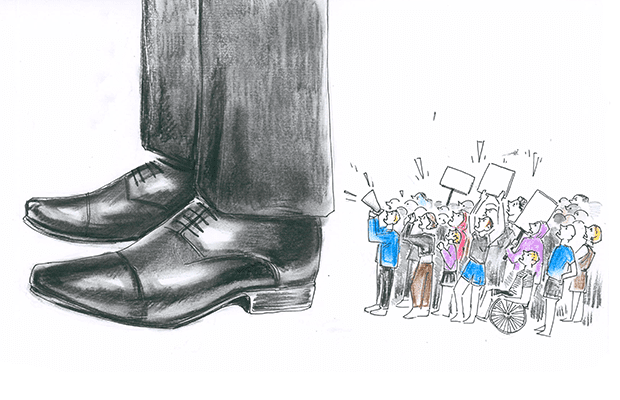With the Israel Folau case and the stalled abortion decriminalisation bill dominating headlines, the debate over religious freedom in Australia is reaching a crescendo. Civil society continues to ask what protections should be given for religious belief, especially when it interacts with the freedom of other people.
But that question has obscured a deeper fundamental fact: that proponents of religious freedom have overlooked the importance of diversity in religious expression. If religious freedom is important, let’s start from within religious institutions, some of which must also be held accountable for inhibiting and attacking the very freedom they clamour to protect.
Many conservative churches and Christians want not only the right to express their beliefs but to discriminate against others within their institutions. This much is gained from submissions to the Ruddock review, with many written by Christians opposed to same-gender marriage.
Most church denominations excluding those with a congregational polity, where each ‘congregation’ is autonomous, can prevent local congregations from making important decisions that affect their church.
This can constrain what they teach, the type of people they ordain, and who they marry or bless. Commonly this involves influencing decisions on whether to ordain women or queer people and whether to perform same-gender marriages.
The Catholic Church is an apposite example of this although this is attributable to its strong hierarchical nature. It does not currently ordain women, nor does it allow the officiation of same-gender marriages. There are other churches which could allow greater diversity of religious expression in their structures but currently do not.
Most notably, the Anglican Church of Australia and other Anglicans churches around the world generally have more autonomy to allow individual churches and dioceses to manage their own affairs. While the worldwide Anglican Communion sets standards on Anglican belief, it does not have the power to force any national church to subscribe to it because each national church is autonomous.
Resultantly, many Anglican churches, including in Australia, have the ability to and not to ordain women. Anglican churches in Scotland, the United States and Canada also perform same-gender marriages, while the Anglican Church in Aotearoa, New Zealand and Polynesia permits blessings of same-gender couples. However, this does not necessarily come with tolerance from above.
Both the Scottish Episcopal Church and the Episcopal Church faced sanctions from the Anglican Communion over their decision to allow same-gender marriages, especially in making decisions on doctrine. And the Global Anglican Future Conference (GAFCON) was created to ‘defend’ their more conservative version of Christianity.
Even when church law gives increased freedom to individual dioceses and congregations, this does not stop other religious groups attacking their autonomy and freedom of beliefs. Religious diversity is a byproduct of religious freedom. Yet, when right-leaning religious groups demand increased religious liberties, they have rejected the freedoms of other religious groups in Australia.
To take one example, the Anglican Diocese of Wangaratta recently decided to allow blessings of same-gender marriages, but was condemned by the Sydney Diocese. While the decision by the Diocese of Wangaratta is being legally challenged in the Appellate Tribunal of the Anglican Church, the Archbishop of Sydney previously accused the faithful mass and clergy of following their specific Bishop rather than what he claimed to be ‘correct’ biblical view on sexuality.
The Uniting Church in Australia has also faced opposition on its decision to allow same-gender marriages narrowly avoiding a challenge which would have forced the issue’s reconsideration. The decision permitted each congregation to choose their definition of marriage. Decisions by the Uniting Church’s National Assembly can, however, be halted and reconsidered if enough synods and presbyteries agree to it.
It is blatantly clear that religious intolerance begins from within, sprouted by religious institutions against those who disagree with them under the same banner of faith. Whether or not actual freedom is given, denominations which allow some freedom within individual dioceses and congregations are attacked for their theological differences.
Yet, those attackers are the same people who largely claim that they care about religious freedoms and want to increase them. Why should the state consider their demands if they can’t even accept religious diversity within their own ranks? If they really do care about religious freedoms than that right should extend to their own communities first. To do otherwise is morally bankrupt.
Wilson is a part-time theological student at Trinity College of the University of Divinity. He identifies as an agnostic Unitarian and has been involved with Uniting Church and Jesuit groups.





